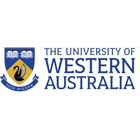Bachelor of Science – Geographical Sciences
Bachelor of Science – Geographical Sciences
Graduates will develop an understanding of environmental processes including atmospheric, aquatic, terrestrial and anthropogenic interactions. Graduates of this major work in positions that require an understanding of, and the science behind complex human-environment interactions. You will use this understanding and spatial information to solve the World’s big challenges. Geographical Sciences…
Categories
COURSE DESCRIPTION
Graduates will develop an understanding of environmental processes including atmospheric, aquatic, terrestrial and anthropogenic interactions. Graduates of this major work in positions that require an understanding of, and the science behind complex human-environment interactions. You will use this understanding and spatial information to solve the World’s big challenges.
Geographical Sciences equips graduates with skills to understand and provide solutions to complex human-environment interactions that drive environmental change.
Course Structure
Our undergraduate degrees offer you a broad range of options allowing you to combine subjects in a way that matches your career goals and personal interests.
Why study this course?
Learn skills in a range of research techniques, including fieldwork, survey design, statistical analysis and spatial data analysis
Study in one of the world’s 25 biodiversity hotspots
Gain hands-on experience in field research, group work and leadership
You’ll learn to
Apply geographical concepts to understand change in human and physical environments
Explain the geographical causes and consequences of major environmental and social issues, including climate change, resource scarcity, urbanisation and sustainability
Apply methods for the investigation and interpretation of spatial processes and patterns in physical and human environments
Communicate geographical perspectives and knowledge effectively to specialist and non-specialist audiences, using appropriately selected written, oral and visual means
Develop the knowledge and skills required for employment in careers related to geography
Career Pathways
Studying a major in Geographical Science can lead to careers in the following areas:
Environmental Management
Landscape Management
Marine and Coastal Science and Management
Catchment and Water Science and Management
Industries hiring Marine and Coastal Processes graduates include:
Environmental regulation and consulting
Mining
Agriculture
Property and land development
Health
International development, NGOs and not-for-profits
Further Study
An Honours in Geographical Sciences provides you with the skills and knowledge to engage in the advanced analysis of spatial patterns and processes in natural and built environments. It provides you with training in conceptual methodological approaches to geographical inquiry and develops an appreciation of the links between theory and practice in geography. You will also engage in an independent research project on a topic of geographical significance.
Students are eligible for advanced entry into four specialisations of the UWA Master of Environmental Science degree. This allows students to complete a coursework, or coursework and thesis Masters in: Catchments and Water; Environmental Management; Marine and Coastal Management or Sensing and Spatial Data Science specialisations across 18 months or 3 semesters of study. Entry to the Environmental Rehabilitation or Environmental Economics specialisations is possible with conversion (an extra semester of study).
REQUIREMENTS
Entry requirements may vary from country to country. Students are required to complete an international academic qualification equivalent to Australian High School (or equivalent).
English language requirements:
IELTS (academic): Overall minimum score of 6.5, no band lower than 6.0
TOEFL Internet-based TOEFL (iBT): an overall score of 82 or above with a minimum score of 22 in writing, 18 in reading, 20 in speaking and 20 in listening
Pearsons Test of English (PTE) (academic): An overall score of 64 with a minimum score of 59 in the speaking and writing sections, and no less than 54 in the other sections
EDUCATIONAL INSTITUTION
The University of Western Australia (UWA) is a proud member of the Group of Eight and is the only university in Western Australia to be ranked in the world top 100 universities (QS World University Rankings 2023).UWA’s main campus is located in Perth, Western Australia and is home to more than 23,000 students. Perth is Australia’s fourth-largest city with over two million people from a variety of cultures worldwide, a strong economy and vibrant lifestyle. Perth is one of the country’s most affordable cities, the closest major Australian city to Asia, and in the same time zone as most of Asia.

